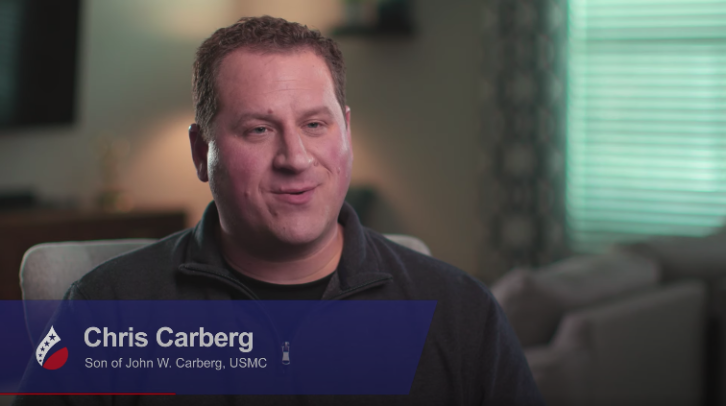What Are Camp Lejeune Water Contamination Presumptive Illnesses?

Camp Lejeune water contamination presumptive illnesses are specific health problems that the U.S. Department of Veterans Affairs (VA) recognizes could result from exposure to the base’s toxic water.
Here are the Camp Lejeune water contamination presumptive illnesses:
- Adult leukemia
- Aplastic anemia and other myelodysplastic syndromes
- Bladder cancer
- Kidney cancer
- Liver cancer
- Multiple myeloma
- Non-Hodgkin’s lymphoma
- Parkinson’s disease
From the 1950s to the 1980s, people living and working at Camp Lejeune in North Carolina unknowingly consumed contaminated drinking water tainted with harmful chemicals, including industrial solvents and volatile organic compounds (VOCs).
Using this water could cause any of the presumptive illnesses listed above — as well as many other diseases and conditions.
After decades of denying that service members and their families were being exposed, the federal government finally granted VA disability benefits to anyone diagnosed with Camp Lejeune water contamination presumptive illnesses.
Watch this short video from our founder, who lost his father to bladder cancer.
Hear from our founder, Chris Carberg, on how losing his dad to Camp Lejeune bladder cancer became the driving force behind our relentless pursuit of justice for every Camp Lejeune victim. View Transcript.
Duration: 02 min 43 sec
I used to ask my dad, “What was it like when you were a Marine, or when you were formerly a Marine?” And he would correct me every time, he’d say, “You’re never formerly a Marine. It’s never something in the past. Once you’re a Marine, you’re a Marine for life.”
My name is Chris Carberg and my father was United States Marine John Carberg, who passed away from bladder cancer.
My dad was 17 years old when he joined the Marines. And his dad was a Marine, his brother was a Marine. It was something in our whole family that we were proud of. He lived on a military base.
My father was at Camp Lejeune for, I believe less than 60 days. He had no idea that there was anything wrong with the water.
And to think that people were spending their last moments, before they were deployed to dangerous situations, being poisoned is absolutely infuriating. We had families at Camp Lejeune. We had families on the base. We had mothers who were pregnant drinking that water.
What changed with the PACT Act and with the Camp Lejeune Act of 2022, is that for the first time, the government lowered and dropped its own immunity to being prosecuted. Veterans, their family members, they are able for the first time to file lawsuits against the government.
My dad never cared about his legacy, but what he cared about was his family. He cared about my mom, he cared about me and my sister. He cared about us. and I think that what he would want is what he always wanted. For his family to be taken care of, for my mom to be taken care of. My dad would never do something like this for himself, but he would do it for my mom in a heartbeat.
When my son and daughter ask me eventually, “What happened to Pop-pop?” I have to tell them the truth, which was that, “Well, Pop-pop was serving his country proudly. He did everything the right way, doing that that he could.” And now it’s our turn, it’s our turn to care for him and while he was sick and alive, we fought for him. We did our very best.
It’s our job as families to honor the memory of our loved ones by fighting on their behalf when they can’t fight for themselves anymore.
What Diseases Are Associated With Camp Lejeune Water Contamination?
There are many Camp Lejeune health problems and diseases, not including the presumptive illnesses above. This is because the toxic water at the base has a decades-long history of impacting both veterans and their families, including pregnant women and children.
It is very important to understand that you do not need to be diagnosed with one of the Camp Lejeune water contamination presumptive illnesses to take action.
Here are some of the health issues on the suspected Camp Lejeune disease list:
- Amyotrophic lateral sclerosis (ALS or Lou Gehrig’s disease)
- Aplastic anemia
- Birth & reproductive issues
- Cancer (multiple types)
- Crohn’s disease
- Dental issues
- Heart disease
- Hepatic steatosis
- Hodgkin’s lymphoma
- Myelodysplastic syndromes
- Neurological disorders
- Renal toxicity
- Scleroderma
If you were diagnosed with any of these Camp Lejeune water illnesses, you may be eligible to receive compensation. If your loved one passed away and you think it could have been due to Camp Lejeune health issues, you may also have rights.
Camp Lejeune Cancers
According to reports released by the Centers for Disease Control and Prevention (CDC), people living and working at Camp Lejeune while the water was contaminated were more likely to die from certain cancers.
Cancer types linked with Camp Lejeune water contamination include:
- Bladder cancer: Usually begins in the cells that line the bladder, kidneys, and ureters.
- Breast cancer: Abnormal cell growth in breast tissue, affecting both men and women, but more prevalent in women.
- Esophageal cancer: Malignant tumor in the esophagus, the tube connecting the throat to the stomach.
- Kidney cancer: The most common form of kidney cancer, also known as renal cell carcinoma, is the most common form of kidney cancer. It is often discovered in the early stages when it is still small.
- Liver cancer: Begins in the cells of the liver, which are located in the upper right portion of the abdomen. The most common type of liver cancer is hepatocellular carcinoma.
- Multiple myeloma: Forms in plasma cells, a type of white blood cell. Cancerous plasma cells gather in the bone marrow, forcing healthy blood cells out.
- Non-Hodgkin’s lymphoma: Starts in the lymph nodes and lymphatic tissue, which are part of the body’s immune system. With this form of cancer, white blood cells called lymphocytes can grow and form tumors throughout the body.
- Pancreatic cancer: Begins in the pancreas, a vital organ for producing digestive enzymes and hormones like insulin. It’s often diagnosed late and has a low survival rate due to its subtle early symptoms.
- Prostate cancer: Develops in the prostate (a gland located below the bladder in males) and is often slow-growing. It may require varied treatments based on its aggressiveness and stage.
Camp Lejeune Birth Issues
When developing babies are exposed to TCE during the first three months of pregnancy, they are at an increased risk of heart problems and immune system disorders.
Sadly, pregnant women who drank or used water at Camp Lejeune, especially between 1972 and 1985, were likely exposed to TCE.
Although TCE causes specific risks, any contaminated water can be harmful to developing babies and young children.
“One section of the Jacksonville City Cemetery, near Camp Lejeune Marine Base, is a sad reminder of the cost of toxic exposure. It’s reserved solely for babies who died after they and their parents were exposed to toxic drinking water on the base for decades.”
–NBC News
The following conditions are linked to exposure to Camp Lejeune water during pregnancy:
- Birth defects
- Fetal death (stillbirth)
- Low birth weight
- Miscarriage and infertility
Additionally, infants and young children who used water from Camp Lejeune while the water was contaminated may be at increased risk of cancer.
Can I Get Veterans Benefits Without a Presumptive Illness?
Yes, you can seek veterans benefits for Camp Lejeune health conditions even if you don’t have one of the Camp Lejeune water contamination presumptive illnesses.
To get VA disability benefits, you’ll need to provide evidence that your condition is directly related to your service or the water contamination at Camp Lejeune.
This evidence typically involves:
- Diagnosis from a health care provider
- Scientific or medical evidence linking your condition to exposure
- Service records confirming your time at Camp Lejeune during the period of contamination (1953-1987)
Veterans with a presumptive service connection can more easily obtain disability compensation. However, the process may be harder if you haven’t been diagnosed with a Camp Lejeune water contamination presumptive illness because of the additional evidence required.
Thankfully, a VA representative or a veterans service organization can guide you through the process, ensuring you submit all needed evidence and improving your chances of getting approved.
Are Lawsuits Only for Presumptive Camp Lejeune Illnesses?
No, lawsuits aren’t limited to just the Camp Lejeune water contamination presumptive illnesses recognized by the VA. The list of presumptive conditions streamlines the process for affected veterans to obtain disability compensation.
However, victims across the country are pursuing legal action through Camp Lejeune lawsuits for various health issues they believe are connected to the tainted water.
If you lived or worked at Camp Lejeune for at least 30 days between 1953 to 1987 and believe you’ve suffered harm due to the water contamination, you may be eligible to file a lawsuit. Survivors may also have new legal rights.
It doesn’t matter if your condition is on the list of Camp Lejeune water contamination presumptive illnesses or not.
A qualified Camp Lejeune lawyer can help you better understand your rights and the required evidence.
How Do Camp Lejeune Lawsuits Work?
The exact process for how Camp Lejeune lawsuits will be handled is still being finalized. However, there are some general steps that may help in understanding how a lawsuit might play out.
Here are some general steps to how a Camp Lejeune lawsuit works:
- Consult with a Camp Lejeune attorney
- Gather evidence such as medical records and service documentation
- File a Camp Lejeune lawsuit before the deadline (August 10, 2024)
- Prove a direct connection between the exposure to contaminants and Camp Lejeune health issues using expert testimonies and other evidence
- Negotiate a settlement or go to court for a trial verdict
- Receive compensation for your Camp Lejeune health issues
It is very important to understand that compensation received from a Camp Lejeune lawsuit does not affect existing or future VA benefits.
Further, the lawsuit process is the same whether you’re filing for a presumptive Camp Lejeune illness or another health problem related to the base’s toxic water.
What Is the Average Compensation for Camp Lejeune Water Contamination?
There is no way to predict average compensation for Camp Lejeune water contamination lawsuits. This is because lawsuits have never been allowed in this manner until the Camp Lejeune Justice Act of 2022 (part of the PACT Act).
That said, lawyers closely involved in the litigation estimate payouts between $25,000 to over $1 million through Camp Lejeune settlements, depending on how serious the health problems are.
Find out if you can get compensation from a Camp Lejeune lawsuit. You may be eligible, even if you were denied benefits in the past or your loved one has already passed away. It is not too late to get justice.
Is There a Deadline to File a Camp Lejeune Lawsuit?
Yes, there is a deadline to file a Camp Lejeune lawsuit, which is set for August 10, 2024.
It’s essential to adhere to this deadline. If you don’t file your lawsuit on time, you will lose your chance to take legal action against the federal government for Camp Lejeune health issues.
By not taking action, you risk missing out on getting financial compensation to make up for decades of health challenges, medical expenses, emotional distress, and other hardships resulting from exposure to the toxic water at Camp Lejeune.
RELATED: Stay informed on the current status with our Camp Lejeune lawsuit 2024 update.
Get Legal Help for Camp Lejeune Water Contamination Diseases
If you or a loved one lived or worked at Camp Lejeune for at least 30 days between 1953 and 1987, you may have been exposed to harmful chemicals.
Even if you were not diagnosed with one of the Camp Lejeune water contamination presumptive illnesses, you can still take legal action. Even if your exposure or the death of a loved one happened long ago, it is not too late for you to seek justice.
Our mission is to ensure that those affected receive the justice and financial support they are entitled to.
By reaching out to us, you’re taking a crucial step towards safeguarding your rights and finally getting the justice your family deserves.
Presumptive Illnesses from Camp Lejeune Water Contamination FAQs
What illnesses are associated with Camp Lejeune water contamination?
Camp Lejeune water contamination illnesses include multiple types of cancer, reproductive issues, birth defects, and neurological disorders.
People who were exposed to the toxic drinking water were put at risk of many conditions such as bladder, breast, and lung cancer, infertility, and Parkinson’s disease, among others.
If you spent at least 30 days on the Marine Corps base between 1953 and 1987, you could have been exposed. Always talk with your doctor about your symptoms and let them know about your time spent on the base.
What toxic chemicals were in the water at Camp Lejeune?
The chemicals in Camp Lejeune’s contaminated water supply are called volatile organic chemicals (VOCs). They included benzene, trichloroethylene (TCE), vinyl chloride, perchloroethylene (PCE), and more.
The Agency for Toxic Substances and Disease Registry (ATSDR) was at the forefront of researching the impacts of these contaminants.
Are there long-term effects of Camp Lejeune contamination?
Yes, you are at risk of long-term health effects if you were exposed to contaminated Camp Lejeune water. These include many serious and chronic illnesses caused by Camp Lejeune water contamination, like various cancers, neurological disorders, reproductive issues, and more.
Make sure to get regular medical check-ups if you were exposed to the toxic water.
What are all the symptoms from Camp Lejeune?
The symptoms from the water contamination vary based on the specific Camp Lejeune illnesses that are involved.
Symptoms can range from unexplained weight loss, fatigue, and cognitive issues to more disease-specific signs. Regular medical assessments are crucial for early detection and intervention.
What are the neurological diseases in Camp Lejeune water?
The neurological disorders linked with Camp Lejeune’s toxic water include Parkinson’s disease, multiple sclerosis (MS), and amyotrophic lateral sclerosis (ALS), also known as Lou Gehrig’s disease.

